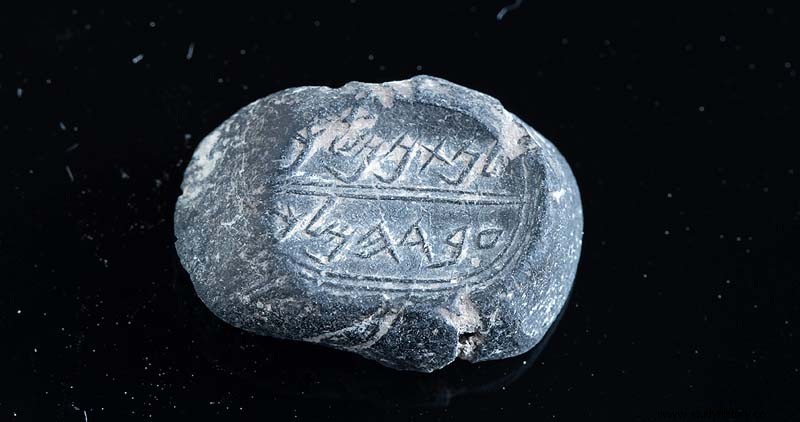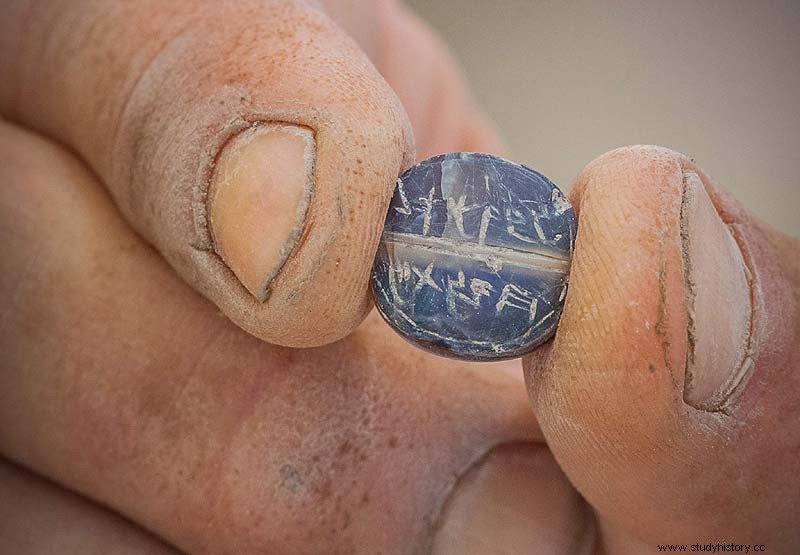If a few days ago we reported the discovery of a piece of pottery with the image of the Egyptian god Bes in the Archaeological Park of the City of David in Jerusalem, now archaeologists have announced the discovery of a seal printed on a bulla (small stone used as an amulet or to seal documents in ancient times) dating back 2,600 years.
In this case, the ceramic piece, which could have been part of a ring that its owner used to sign documents, appeared in the ruins of a building destroyed by fire in 586 BC, during the capture of Jerusalem by Nebuchadnezzar II of Babylon.
The city was completely razed to the ground, Solomon's temple destroyed, and most of the elite citizens taken captive to Babylon. Only a small part of the peasants were allowed to stay to continue cultivating the land.

Burnt wooden beams, remnants of a sunken polished plaster floor, and numerous charred pottery shards were found in the same building, suggesting its destruction by a major fire.
The seal, barely a centimeter wide, bears an inscription that reads:(belonging to) Nathan-Melech, Servant of the King . According to archaeologists the name Nathan-Melech appears on one occasion in the Bible, in the second Book of Kings (23:11), where he is described as an official of the court of King Josiah, who was king of Judah between 639 and 608 BC, in whose important reforms participated:
According to Dr. Mendel-Geberovich, the fact that this official was mentioned only by his first name indicates that he was well known, and therefore there was no need to add his family lineage. He also points out that, although it is not possible to determine with certainty that the Nathan-Melech mentioned in the Bible is the same as the owner of the seal, there are certain details that relate them.

Another stone seal with the phrase (belonging to) Ikar son of Matanyahu was found in the same place. The name Matanyahu, which also appears in the Bible, has been found on other seals already unearthed, although the name Ikar was unknown until now. Its literal meaning is farmer , although it could also refer to the name of a specific individual, instead of referring to his occupation.
According to archaeologists, these artifacts attest to the highly developed system of administration in the Kingdom of Judah and add important information to our understanding of Jerusalem's economy and administrative system during the first temple period, as well as personal information about the officials and administrators closest to the king who lived and worked in the city .
